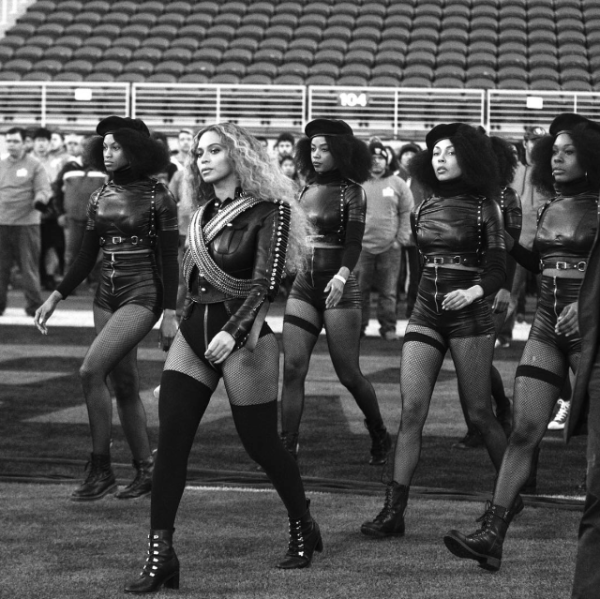This article was first posted in a blog I made for a seminar on Racism at the university of Hamburg.

Being a Black Woman in the USA
The particular angle with which I wish to analyse this term will not only be that of pure racism, but, in accordance with third-wave feminism, that of intersectionality also called Black Feminism.
While denunciating both the ethnocentrism of second-wave feminism and the androcentrism of subaltern and racial studies of its time, Black Feminism first emerged from the independent spheres in the 1970s, although it was Kimberley Crenshaw in 1989 who first defined the term intersectionality. In her work, Crenshaw discussed of the importance of the existence of a Black Feminist Theory, which would argue that the experience of a black woman cannot be understood simply in terms of being black or of being a woman. Each concept is intertwined with the other and depends on one another, creating a particular social position. This intersectional position of an individual is unique to that individual and yet allows that
Over the years, Black Feminism has found many supporters in both the Academic sphere: bell hooks, Kimberly Creshaw and Angela Davis are but a few examples of women whose expertise has been recognized inside the community. Among them, I chose to focus my studies on two whose work I find crucial to our study. The first is the poet, LGBT activist and sociologist Audre Lorde, the second the sociologist and Black rights activist Patricia Hill Collins.
Audre Lorde was an African-Amercian Lesbian scholar whose position led to reconsider the terms of feminism and sexuality as mere social constructs based on a Western binary outlook of the world. Instead of refusing to recognize differences between individuals, she posited that differences ought to be used for the better. Her work acted out against separations such as “race”, age, class, gender, seeking instead to make connections and to break the silence and the invisibility of so many experiences.
Patricia Hill Collins is a University Professor of Sociology at the University of Maryland, College Park. Inspired by authors such as Audre Lorde and Angela Davis, Collins’s work is primarily concerned with issues involving feminism and gender within the African-American community. In her latest work, she examines the current prejudices against Black Women, which she calls “New Racism,” and explores how old ideas about what racism is prevents society from recognizing and fixing the wrongdoings that still exist today. She draws on a large range of examples, from American identity, to motherhood, to feminine portrayal in hip-hop. Following the Civil Rights Movement, Collins argues, there was a “shift from color-blind racism that relied on strict racial segregation to a seemingly colorblind racism that promised equal opportunities yet provided no lasting avenues for African American advancement”.
As such, drawing on both theories, we partly conclude that being a Black Woman will have different significations depending on the experience of the person, however, it will be a common identity trait for all women born and raised as part of the Black community. What is more, it seems the concretization of this identity is done through interactions with members of their own community as well as other communities who identify them as such.
This latter point was further examined in a study by Amy Wilkins published in 2012, where she understood the process of becoming Black Women for Black Female College students coming from primarily White neighborhoods who discovered the concept of being a Black Woman as part of their identity only after entering University. The particular angle taken by this study is that of intimate stories, and, notably so, how Black Women define themselves according to Black Men and the behavior of other members on campus. The methodology of this study follows one of storytelling, where each particular case is taken and studied individually, in the hope to draw the similarities but also the particularities of each experience out. As a result, the author shows how the social imaginary of the Black woman is one that is binding but also erases each woman’s individuality. If the common traits that enter this controlling image – namely strength of character, independence, an angry or “sassy” behavior – help them be accepted within a community, they also prevent them from growing outside of it as their own person and therefore from expressing their own individuality.
https://www.youtube.com/watch?v=blX2YHdqUJA
Some responses by Black Women to stereotypes… A project by WatchCut Videos
Black Feminism in Pop Culture: the example of Hip Hop and Rap
Some Feminist Figures of Black Popular Music Culture:
- Ndegeocello: As Andreana Clay said in her study of Ndegeocello’s music, the rapper’s impact on music was overlooked. As a result, in “Like an old soul record”, Clay studies the importance of the work of Ndegeocello, an LGBT rapper in the early 1990s who, through her lack of compromise, was overlooked by both the white and Black community. She defines 90s Hip Hop as,contrary to 80s Hip Hop, a depiction of the hard Black life and the new forms of racism that have spurred in the implicit. In such an age, Hip Hop becomes the new Blues for women, granting them freedom in the texts and allowing them to express themselves fully.
- Nicki Minaj: Pop artist and Rapper, Nicki Minaj, like Beyoncé, is known for her unapologetic sexual confidence. By reaffirming her body as legitimately sexual and controlled as such, Nicki Minaj breaks the boundaries of the socially imagined “overly sexual” Black body – more specifically the representation of the “Big Black Butt” in the media – and, as such, renders the latter a legitimate attribute that constitutes the identity of a Black Woman without keeping its constraining aspect.

